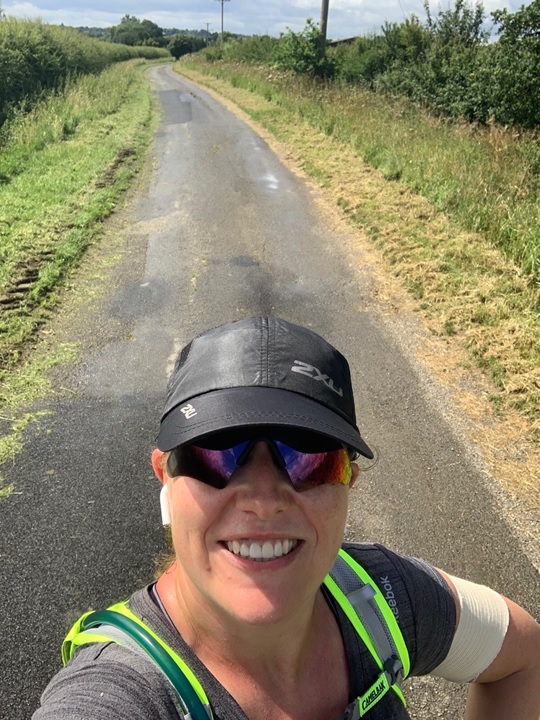I’m training for a marathon, my first ever marathon, but it’s just been cancelled. However, that’s not going to stop me. My training has been going well, so rather than defer my place to 2021, I’m almost ready to run a virtual marathon instead (which means I cover the distance myself, but I run the race alone, at a time and date to suit me). The run will be formally recorded on Strava.
I’ve been training since January, and have covered hundreds of miles so far. I’ve spent hours on the road, always alone, often in silence. The way I have been living my life during training is all about mustering the resilience I need to complete the marathon, and a series of long training runs before it.

I can’t help but draw a parallel with some of the tactics I’ve been using, which are helpful ways to build resilience in a broader sense, which we know helps us spring back quicker and easier after set-backs and generally increases productivity, happiness and is a positive move towards good mental health.
Here are my tips:
- Manage your physical energy meticulously – running takes a huge toll on my physical energy, and I’ve become more aware than previous about the rest that I need to take in order to recover. The same is true when not training for a marathon, we may just be less aware of our needs. Getting enough sleep consistently, but particularly the night before a big day is essential. Planning to take breaks during the day or to rest on the weekend after a big week is something we often overlook but would always benefit from.
- Set small, achievable goals – I started at 5k, now I’m regularly running distances longer than half-marathons. But I had to set the 5k goal (and celebrate success) to progress to the half-marathon goal. Setting micro-goals helps to break seemingly-insolvable problems down to achievable chunks, so rather than looking at an overwhelming end-goal, progress is made and measured regularly and you feel great about the direction of travel. Celebrating milestones along the way is an important way to stay motivated and on-track.
- Create and use a support network – my family and friends have been a huge support to me along this journey so far. Whether that’s sponsorship, or more practical help like recommending the best running shoes, they’ve been by my side. Cultivating a strong and varied support network both in and outside of work is essential to build resilience. For example, I have been privileged to attend a weekly virtual drinks meeting with some of my former colleagues every week during lockdown. At this meeting, problems are shared, anecdotes are offered, conversation is light and uplifting and resilience is built through shared experience, perspective and empathy.
- Be consistent – as with a marathon training plan, building resilience takes time, intention and consistency. Practicing good habits and holding yourself accountable are ways to build consistency into your efforts to become more resilient.
- Avoid negativity – it’s not helpful when well-intentioned people offer up words of wisdom such as ‘are your hips really going to be OK for 26 miles?’. Instead, it’s much more helpful to think positively and not get hung up on how hard this will be. The same is true outside of training. Avoiding negativity (but also avoiding blind positivity) is a great way to foster resilience. Being pragmatic but positive in the face of adversity wins every time.
- Find and remember your purpose – when times are tough on my runs, I remember why I’m doing this. To raise funds for the hospice that took care of my dad so carefully in the last 5 days of his life. Keeping a purpose in mind when times get tough, whether it’s on a run or in the office, helps gain perspective and focus. For example, my purpose is to make a difference to people – which resonates equally as well when pounding the streets to raise money for a hospice as it does to spend that extra hour with a team member who needs support. Both make me feel equally rewarded.
I’ll be running a virtual marathon in July and posting the Strava recording on my Just Giving page. To read more about my story or to support me and to donate to Myton Hospice, click below:

